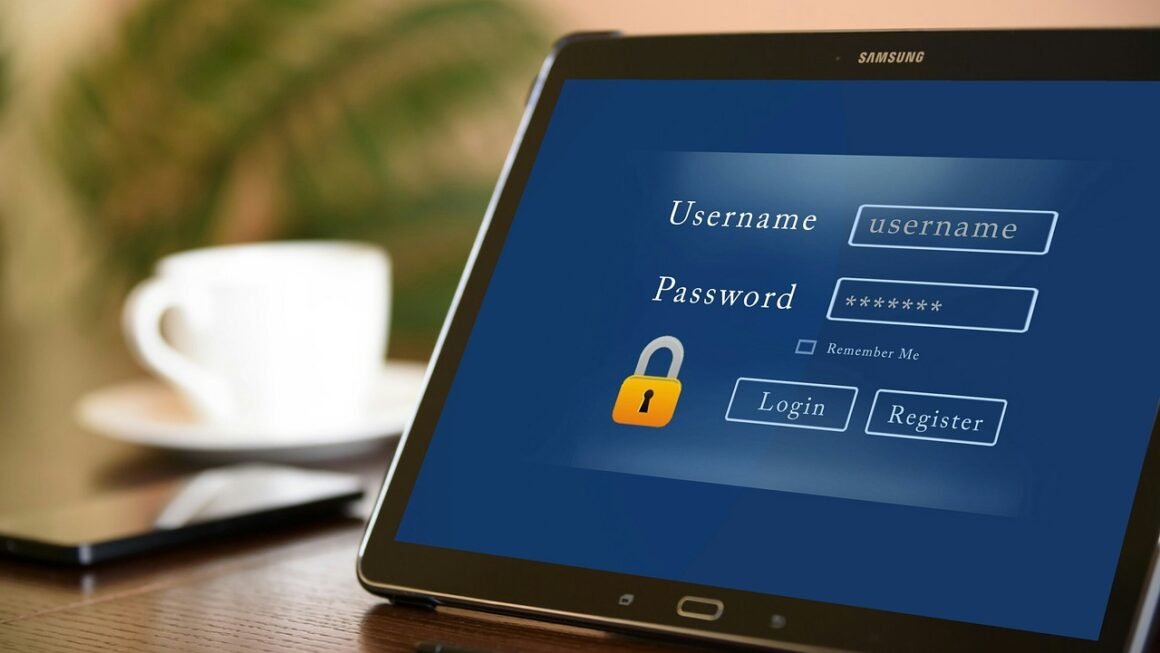In today’s interconnected world, where digital threats lurk around every virtual corner, antivirus software is no longer optional – it’s a necessity. From safeguarding personal data to protecting against financial losses, a robust antivirus solution acts as your first line of defense. This guide provides a comprehensive overview of antivirus software, helping you understand its importance, features, and how to choose the right one for your needs.
Understanding Antivirus Software
Antivirus software, at its core, is designed to detect, prevent, and remove malicious software (malware) from your computer, tablet, or smartphone. It’s constantly evolving to combat the ever-growing sophistication of cyber threats.
How Antivirus Software Works
Antivirus software employs various techniques to protect your devices. Here’s a glimpse into its inner workings:
- Signature-based detection: This is the traditional method, comparing files against a database of known malware signatures. If a match is found, the software flags the file as malicious.
Example: Think of it as a digital fingerprint. The antivirus has a massive library of malware fingerprints, and if a file’s fingerprint matches one in the library, it’s flagged.
- Heuristic analysis: This method examines the behavior of files and programs to identify suspicious activities. Even if a file doesn’t match a known signature, it can be flagged if it acts like malware.
Example: If a program tries to modify critical system files or replicate itself rapidly, heuristic analysis will likely flag it as suspicious, even if it’s a new, unknown threat.
- Real-time protection: This feature constantly monitors your system for suspicious activity, providing immediate protection against threats as they emerge.
Example: Real-time protection scans files as you download them, websites as you visit them, and emails as you receive them, preventing malware from ever gaining a foothold.
- Cloud-based scanning: Some antivirus solutions utilize cloud technology to scan files against a vast database of known threats stored in the cloud. This reduces the load on your local system and provides access to the latest threat intelligence.
Example: Instead of relying solely on local databases, your computer sends a “fingerprint” of a file to the antivirus vendor’s cloud. The cloud database, updated in real time, determines if the file is malicious and sends the result back to your computer.
Why You Need Antivirus Software
The consequences of a malware infection can be devastating. Antivirus software helps prevent:
- Data theft: Hackers can steal your personal information, financial data, and other sensitive information.
- Financial loss: Malware can be used to drain your bank accounts or make fraudulent purchases.
- Identity theft: Stolen personal information can be used to open fraudulent accounts or commit other crimes in your name.
- System damage: Malware can damage your operating system, files, and hardware.
- Decreased performance: Malware can slow down your computer and make it unusable.
- Ransomware attacks: This type of malware encrypts your files and demands a ransom payment for their release. According to a recent report, the average ransomware payment in 2023 was over $260,000.
Key Features to Look For in Antivirus Software
Not all antivirus software is created equal. When choosing a solution, consider the following features:
Core Protection Features
- Real-time scanning: Essential for preventing infections before they occur.
- Scheduled scans: Allows you to run regular scans of your system at convenient times.
- Malware removal: Capable of effectively removing detected threats.
- Automatic updates: Ensures that the software is always up-to-date with the latest threat definitions.
Advanced Security Features
- Firewall: Monitors network traffic and blocks unauthorized access to your system.
- Web protection: Blocks access to malicious websites and phishing scams.
- Email protection: Scans incoming and outgoing emails for malicious attachments and links.
- Ransomware protection: Provides specific defenses against ransomware attacks, such as behavioral monitoring and file recovery tools.
- Vulnerability scanning: Identifies and reports on security vulnerabilities in your software.
- Sandbox testing: Allows you to run suspicious files in a safe, isolated environment to see if they are malicious.
Additional Features
- Password manager: Helps you create and store strong, unique passwords.
- VPN (Virtual Private Network): Encrypts your internet traffic and protects your online privacy.
- System optimization tools: Can help improve your computer’s performance.
- Parental controls: Allows you to restrict access to certain websites and apps for your children.
Choosing the Right Antivirus Software
Selecting the best antivirus software involves careful consideration of your needs and budget.
Consider Your Needs
- Operating system: Ensure the software is compatible with your operating system (Windows, macOS, Android, iOS).
- Number of devices: Determine how many devices you need to protect. Many antivirus vendors offer multi-device licenses.
- Budget: Antivirus software ranges from free to premium subscriptions. Consider your budget and the features you need.
- Technical expertise: Some software is more user-friendly than others. Choose a solution that you’re comfortable using.
Research and Compare
- Read reviews: Look for independent reviews from reputable sources to get an unbiased opinion.
- Compare features: Compare the features of different antivirus solutions to see which ones best meet your needs.
- Consider free trials: Many vendors offer free trials, allowing you to test the software before you buy it.
Reputable Antivirus Vendors
Some of the leading antivirus vendors include:
- Norton
- McAfee
- Bitdefender
- Kaspersky
- Avast
- ESET
Maintaining Your Antivirus Software
Simply installing antivirus software isn’t enough. You need to maintain it to ensure that it’s providing optimal protection.
Keep Your Software Updated
- Enable automatic updates: This ensures that your software is always up-to-date with the latest threat definitions.
- Run regular scans: Schedule regular scans of your system to detect and remove any malware that may have slipped through the cracks.
Practice Safe Computing Habits
- Be cautious of suspicious emails and links: Don’t click on links or open attachments from unknown senders.
- Download software only from trusted sources: Avoid downloading software from unofficial websites.
- Use strong passwords: Use strong, unique passwords for all of your online accounts.
- Keep your operating system and software up-to-date: Security updates often patch vulnerabilities that malware can exploit.
- Use a firewall: A firewall helps protect your system from unauthorized access.
Conclusion
Antivirus software is an essential tool for protecting your devices and data in today’s digital landscape. By understanding how antivirus software works, its key features, and how to choose the right solution, you can significantly reduce your risk of becoming a victim of cybercrime. Remember to keep your software updated, practice safe computing habits, and stay informed about the latest threats. Staying vigilant is the key to a secure digital life.



